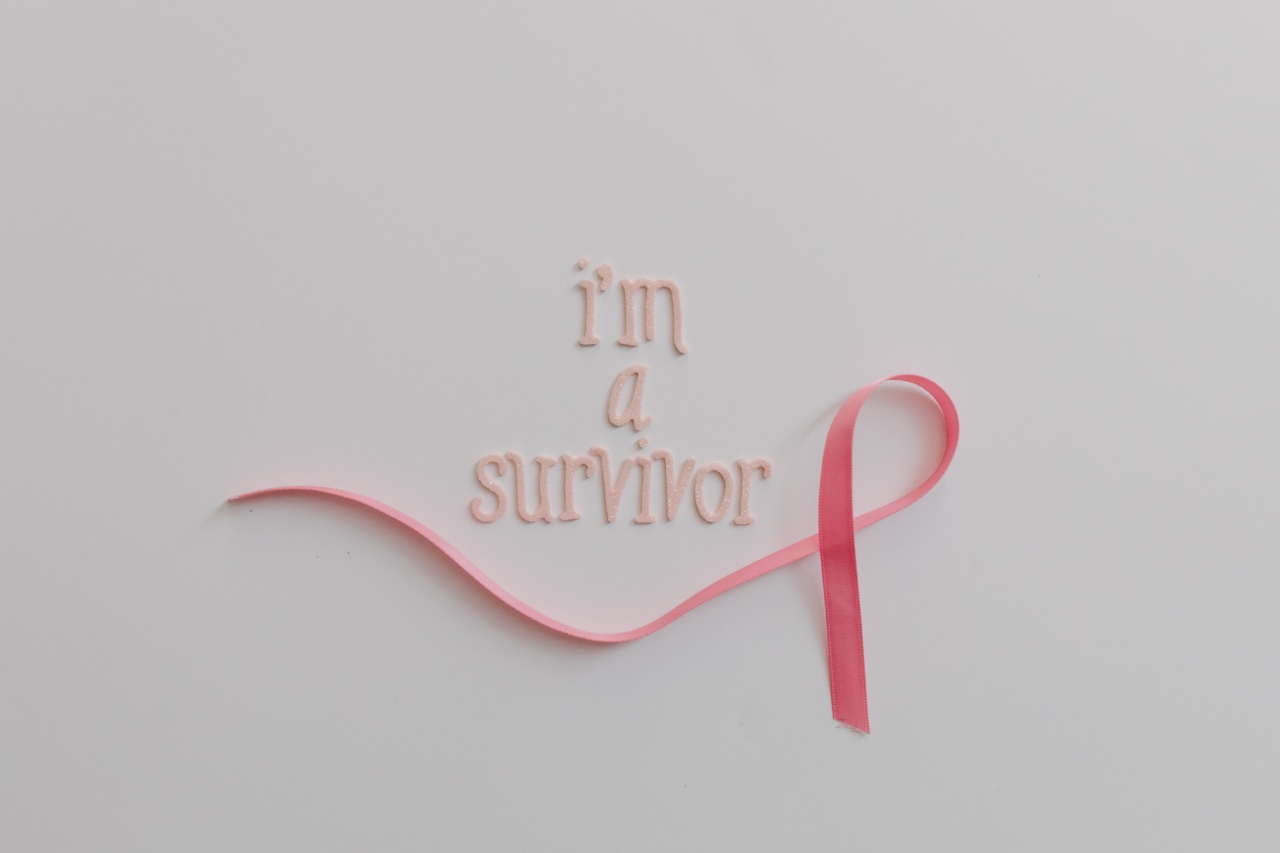Breast cancer affects one out of eight women in their lifetime. Surviving breast cancer is a significant achievement, but the aftermath can be challenging, especially when it comes to sexual health.
Many women are unaware of the long-term effects of breast cancer treatment on their sexual function, and some may experience sexual difficulties that can significantly affect their quality of life.
The impact of breast cancer treatment on sexual health
There are different types of breast cancer treatment, including chemotherapy, radiation, surgery, and hormonal therapy. These treatments can cause significant changes in a woman’s body that can affect her sexual function.
Some of the most common effects of breast cancer treatment on sexual health include:.
- Pain during intercourse: Some women may experience discomfort or pain during penetration due to vaginal dryness, scarring, or nerve damage.
- Low libido: Breast cancer treatment can cause hormonal changes that can decrease a woman’s sex drive. Some women may also experience depression or anxiety, which can further affect their libido.
- Body image issues: Breast cancer treatment can cause physical changes in a woman’s body, including mastectomy, breast reconstruction, weight gain, or hair loss. These changes can affect a woman’s self-esteem and body image, leading to a decreased desire for sexual intimacy.
- Cognitive changes: Some women may experience cognitive changes, such as forgetfulness or difficulty concentrating, which can affect their sexual desire and arousal.
Improving sexual function after breast cancer treatment
While breast cancer treatment can significantly affect a woman’s sexuality, there are ways to improve sexual function and enjoyment after treatment. Here are some tips that can help breast cancer survivors have a fulfilling sex life:.
1. Communicate with your partner
Open and honest communication with your partner is essential to maintaining a healthy sex life after breast cancer treatment. Talk to your partner about your concerns, fears, and sexual needs.
Discuss what feels good and what doesn’t, and come up with strategies to overcome any challenges you may encounter.
2. Address vaginal dryness
Vaginal dryness is a common side effect of breast cancer treatment that can cause discomfort or pain during intercourse. Using a high-quality lubricant or vaginal moisturizer can improve vaginal lubrication and make sex more comfortable.
Some women may also benefit from estrogen therapy, which can help restore vaginal tissue and improve lubrication.
3. Try different positions
Some sexual positions may be more comfortable than others after breast cancer treatment. Experiment with different positions to find what feels most comfortable and pleasurable for you.
4. Consider a sex therapist
A sex therapist can help breast cancer survivors address sexual difficulties and improve their sexual function and enjoyment.
Sex therapy may include individual or couples therapy, education about sexual health, and techniques to enhance sexual pleasure and intimacy.
5. Take care of your overall health
Staying healthy and physically active can improve your overall well-being and sexual function. Eating a healthy diet, exercising regularly, and getting enough sleep can help reduce side effects of breast cancer treatment and improve sexual health.
Conclusion
Breast cancer survivors can have a fulfilling sex life after treatment, but it may take some effort and communication with partners or healthcare providers.
Addressing sexual difficulties early on can help prevent long-term consequences and improve quality of life. With the right tools and support, breast cancer survivors can continue to enjoy intimacy and sexual pleasure.


























